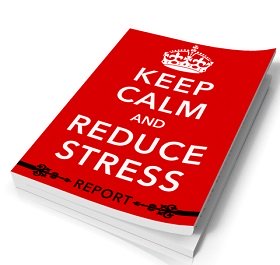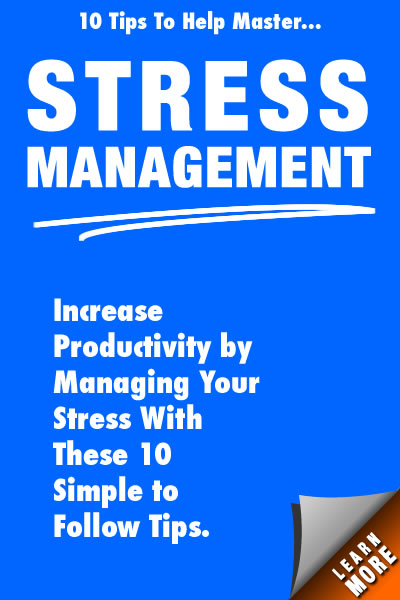Stress and Health
Handling Bad News
Why, when talking about health problems, do we mention stress? Because stress and health are related. So how do you handle the increased stress that occurs if you are the recipient of some bad news? You know, if you are visiting for a routine checkup and the doctor says, "I’m sorry, I have bad news..." Suddenly your life is turned upside-down, and you are reeling from the shock of a potentially life-threatening diagnosis. And you’re stressed—really stressed. What do you do?
Accept The Emotional Reaction.
During these first days of your increased stress and health concerns, consider what you need to do to take care of yourself right now. Give yourself this time to process what you’ve been told and start coming to terms with your situation. Feeling shocked, angry, stunned or even denying the situation is absolutely normal. Take time to process the situation before making any critical decisions.
Do Your Research.
So, now you know. Time for a little education. Check books, the internet, other people who have experienced similar health diagnoses. Learn as much as you can about the disease and its symptoms. Find out what procedures and medicines are used to help heal the disease. Look for who is conducting ongoing research and where you can find support groups. Then you can begin to form a short range and long range plan.
Always get a second opinion. And don’t tell them about the first opinion. Remember that stress and health are directly connected so use the stress you are experiencing to give you more energy and motivation to tackle this life challenge.
Take Responsibility.
During this experience you need to stay in charge of handling the health issues that are developing. You may find it best to keep a journal to list the many doctors, therapists, home health aids, and nurses who might be involved in treating your disease. Keeping a journal helps you document the sequence of events so that the details are available for reference. Part of handling stress and health concerns is relieved by having things in writing. The journal is an excellent tool for all of those involved in your care to use for reference.
Try To Stay Objective.
Take a deep breath and stay positive. Many people spend hours reviewing past behavior, looking for the cause of their condition. But diseases are caused by a combination of many factors, including genetics, age and exposure to germs and toxins. Even if past behavior did influence your current health, now is not the time to blame yourself, but to make decisions that will help minimize the disease’s impact going forward. You may find that your physician can recommend a mental health practitioner if you find it difficult to cope as you handle bad news.
Reduce The Stress.
As you continue down the path of medical treatment, there are ways that you can help yourself through the experience. Take a good look at your lifestyle and find as many ways as possible to reduce your daily stressors. Since stress and health are intertwined, the physical effects of stress can increase the symptoms you are experiencing with your current medical challenge. Reducing unnecessary stress can have a positive impact on your health and recovery.
Improve Your Diet And Exercise.
Eat well and exercise to keep your physical body and mental attitude in the best condition possible as you combat your illness. Stay as healthy as you can so that your body is well nourished and physically strong. You may not feel like eating or exercising at times, but discipline yourself to eat as best you can. Exercise will help keep your body well tuned, reduce stress and health issues will be diminished.
Increase Social Support.
Surround yourself with people who will listen to your honest concerns. A support network provides you an outlet for your stress and is essential for your physical and mental well being. We know that having friends and family who can offer objective advice, and can show empathy helps make the challenge of handling illness less of a lonely experience. Having a strong support network can reduce your stress and health concerns can be more proactively addressed.
Don’t Become The Disease.
Learn about the disease and what can be done to overcome, eliminate or manage the disease. But the disease is only part of you. You have an identity that is much greater than the disease. Live your life as best you can in spite of the disease. Let the experiences you have with this disease teach you about your own character strength and about the world around you. Stress and health issues are definitely related, but let the stress you are feeling be used in a positive way to give you energy to help others with similar challenges.
How to Handle Change in Your Life
Reader Favourite!
Effective Stress Management Listen to Your Body
Join Calm Starts Here, and receive FREE How to Get a Good Night's Rest and Stop Worrying.
Share this Page on SheToldMe.com
Become a FaceBook Fan









